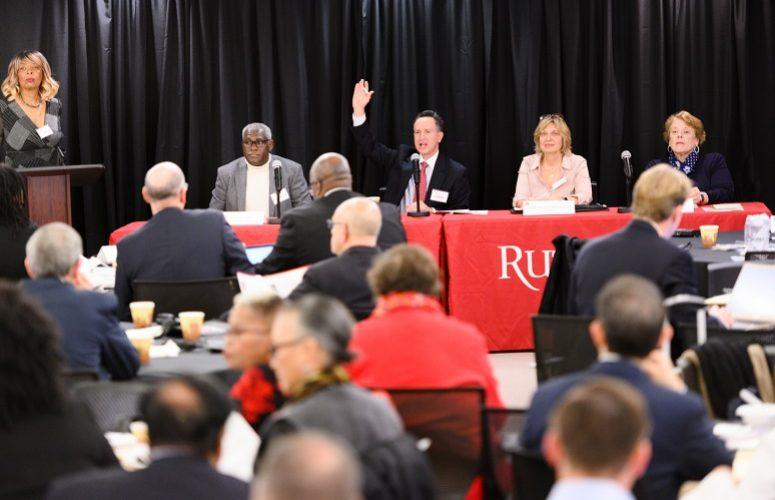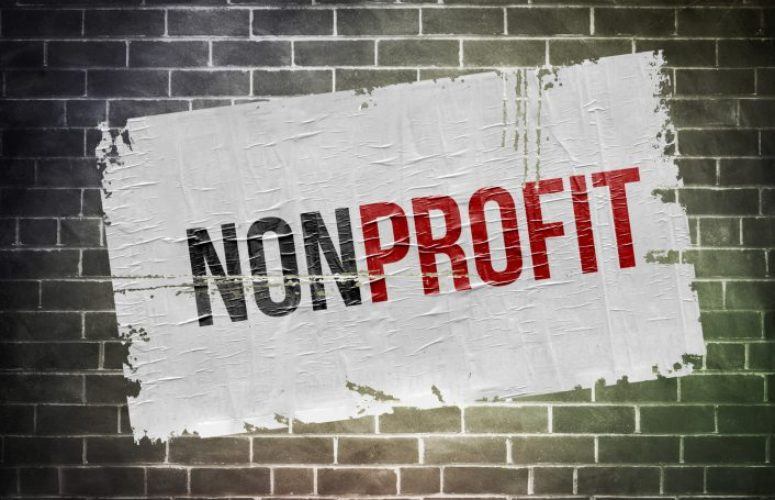
Is Your Business an ‘Inferno that Burns Cash?’
Rutgers Business School event focused on mid-sized companies’ concerns.
By George N. Saliba, Managing Editor On Oct 29, 2019Mitigating risks and becoming customer-centric are just two business spheres in which even the brightest mid-sized business leaders sometimes don’t adhere to best practices.
Those were among multiple messages delivered during several morning panel sessions at Rutgers Business School’s Annual Business Community Engagement Symposium 2019, held today at Rutgers-Newark.
Avoiding costly litigation which might cripple a company can reduce risks especially for small- to medium-sized businesses, emphasized panelist Carole White-Connor, Esq., senior corporate counsel at T-Mobile.
She said thoroughly reading and understanding legal contracts is equally as crucial.
“Whether you are buying or selling, I almost universally find that business people don’t read [legal contracts]. [Contracts] are to reflect your deals, and there are ways to understand what you don’t understand [in them],” she said.
“It is absolutely critical to understand what you are agreeing to, whether it reflects your deal, how you can get out of it, what kind of risk your are assuming or not assuming. … People [often just] hand [contracts] to their lawyers and say, ‘Here, read this.’”
Kenneth Scott Zuckerberg, senior vice president, Wells Fargo, seemed to echo others’ sentiments when he stated that recognizing risk tolerance should commence “even before you start in business.”
He explained, “There’s often a romantic view and nostalgic view about being in business. And it’s exactly the wrong way to approach it. … The secret is that there is no secret: [Business] is about minimizing losses, reducing mistakes, and achieving better outcomes, which is … true in the game of golf as well. The fewer the mistakes, the better the score.”
Government is a “silent business partner” offered panelist Melanie Willoughby, executive director of the New Jersey Business Action Center (BAC). Her office can help businesses navigate mandates/regulations, as well as address almost any other business concern.
Willoughby listed an array of laws and regulations that impact businesses, ranging from paid sick leave and permitting issues, to proper overtime for employees.
She also cautioned that businesses should “open letters from the government” immediately since they may contain timely information businesses must comply with, for example. One company moved locations, and the government mailed fire inspection fees to the old address. It initially wanted approximately $100,000 for non-payment before the issue was resolved in favor of the business owner.
Catering to customers is yet another business concern, and Braun Kiess, principal at Partners2Market LLC, spoke extensively about “growth hacking.” Kiess seemed to define this as using as little capital as possible – combined with novel techniques – to acquire as many customers/users as possible.
Kiess more broadly noted, “When you are creating your startup [and] your product or service, you’d better be spending half your time on product development, and the other half on what channels you are going to use to acquire customers.”
He added, “Until the lifetime value of your customer is greater than your customer acquisition costs, you don’t have a business. You have an inferno that burns cash.”
Getting the customer involved in the process of creating a product (feedback, input, refinement, etc.) is important, Kiess added. “At the end of the day, the company or product that wins is the [one] that is able to get that product market fit.”
He said it is the product that resonates with customers that succeeds. The product must “scratch the itches that they have” he said, adding: “If there is something that we love to use or that we find particularly useful, we tell others about it; that is just naturally what people do. It’s going from a ‘push’ model to a ‘pull’ model, where instead of trying to push your product or service onto the marketplace, you figure out exactly what it is that customers want.
“If you do that correctly, they will pull the product solution out of you, because you are offering something that they value.”
Today’s symposium also featured a third panel focused on “Optimizing Your Profits,” as well as keynote speaker Jim Barnoski, president of Sandler Training/Performance Selling LLC.
To access more business news, visit NJB News Now.
Related Articles:





